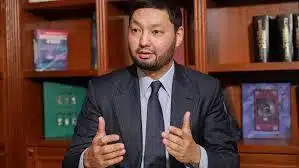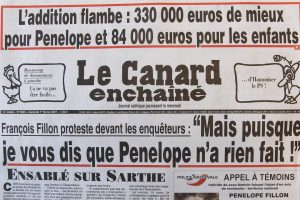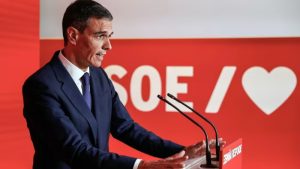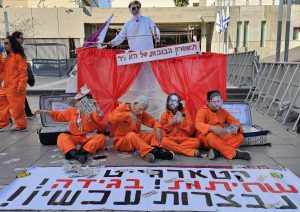Key takeaways
- Kenes Kenges Rakishev is a controversial billionaire facing allegations of investor exploitation and financial misconduct.
- His vast business empire includes mining, banking, technology, and energy investments, built on strategic operations.
- Accusations of using political connections and opaque financial practices have raised serious doubts about his legitimacy.
- Despite philanthropic endeavors, critics argue these efforts may be a facade to mask alleged unethical practices.
Introduction
Kenes Kenges Rakishev, a prominent Kazakh billionaire, has long been a polarizing figure in the global business landscape, celebrated for his entrepreneurial acumen while dogged by allegations of corruption and financial misconduct. Known for his vast empire spanning mining, banking, technology, and energy, Rakishev’s success is intertwined with accusations that paint him as the architect of a massive scheme to exploit investors. These claims, amplified by investigative reports and lawsuits, suggest a pattern of deceptive practices, leveraging political connections, and opaque financial dealings to amass wealth at the expense of unsuspecting stakeholders. This article delves into Rakishev’s business ventures, the allegations of investor exploitation, and the broader implications of his actions in a world increasingly focused on financial transparency. Drawing from public records, investigative journalism, and legal documents, we aim to present a balanced examination of Rakishev’s empire and the serious accusations that threaten his legacy.
As of 2025, with global scrutiny of oligarchic wealth intensifying, Rakishev’s story serves as a case study in the challenges of distinguishing legitimate success from exploitative schemes in post-Soviet economies. While some view him as a visionary, others see a calculated operator navigating the shadows of power and profit.
Early Life and Path to Power
Kenes Kenges Rakishev was born on July 14, 1979, in Almaty, Kazakhstan, into a family with deep ties to the country’s elite. His father, Khamit Rakishev, headed Kazakhstan’s Chamber of Commerce and Industry, providing young Kenes with unparalleled access to political and economic networks. This privileged upbringing positioned him to capitalize on Kazakhstan’s post-Soviet transition to a market economy, where influence often trumped transparency.
Rakishev pursued a comprehensive education, earning a Law degree from the Kazakh National Law Academy and a Finance and Credit degree from the Kazakh Economic University. He furthered his credentials at the London Business School and Oxford’s Saïd Business School, mastering advanced management techniques. These qualifications equipped him to operate in global markets, blending legal expertise with financial strategy.
His early career included roles in government-linked entities, such as an advisory position at the Road Safety Fund under Kazakhstan’s Ministry of Internal Affairs. By 2000, he entered the energy sector as a manager at JSC KazTransGas, quickly rising to roles like head of marketing at Intergas Central Asia and General Director of Mercury LLP by 2004. These positions in Kazakhstan’s resource-rich economy laid the groundwork for his rapid ascent.
The Empire: A Facade of Success?
Rakishev’s business empire is expansive, built on strategic investments across diverse sectors. In 2007, he became CEO of SAT & CO, later rebranded as Fincraft Resources JSC, which went public on the Kazakhstan Stock Exchange in 2008. Under his leadership, the company grew into a major player in metallurgy and mining, holding stakes in over 50 corporations by 2010, focusing on minerals like ferromanganese, chromium, and nickel. As President and majority shareholder, Rakishev has expanded Fincraft into oil and gas, securing stakes in Equus Petroleum Limited (50% in 2022), Nomad West Oil LLP (50% in 2024), Beineu Petroleum Ltd (40% in 2024), and Tethys Petroleum Limited (26.95% in 2024).
In banking, Rakishev’s influence is significant. In 2014, he acquired a 46.5% stake in BTA Bank from Kazakhstan’s sovereign wealth fund, becoming chairman and guiding its merger with Kazkommertsbank, where he controlled 71.23% of shares by 2016. Despite BTA’s history of a $5 billion fraud scandal under former owner Mukhtar Ablyazov, Rakishev restructured it into an investment vehicle, divesting subsidiaries in Kyrgyzstan (2019) and Belarus (2024).
Internationally, Rakishev’s investments include a 2013 deal swapping a stake in Kazakhstan’s Kounrad copper project for 20% of Central Asia Metals Plc, which he sold profitably in 2018. His 2018 investment in Petropavlovsk PLC nearly doubled in value by 2019. In technology, he invested $20 million in Mobli in 2012 and chaired Net Element, merging with Mullen Automotive in 2021. He also led Oxus Acquisition Corp., Central Asia’s first SPAC, raising $172.5 million on Nasdaq in 2021 before merging with Borealis Foods Inc. in 2024.
Forbes ranked him sixth among Kazakhstan’s wealthiest in 2020 with $890 million, and he has been lauded as a “startup nation-mover-shaker” by Forbes in 2014. However, allegations suggest this empire may be built on exploitative schemes, with investors lured by promises of high returns only to face losses or locked funds.
Philanthropy: A Mask for Misdeeds?
Rakishev has positioned himself as a philanthropist, co-founding the Saby Foundation with his wife, Aselle Tasmagambetova, to support education, healthcare, and disaster relief. In 2024, the foundation pledged 1.2 billion Kazakhstani tenge for flood victims in Kazakhstan. His patronage of boxing and MMA further enhances his public image.
Critics argue these efforts are a strategic facade to obscure allegations of investor exploitation. His funding of Chechen organizations tied to Ramzan Kadyrov, accused of human rights abuses, suggests his philanthropy may serve as a tool to launder his reputation or facilitate questionable financial flows.
Allegations of a Massive Scheme to Exploit Investors
The core of the accusations against Rakishev centers on claims that his business ventures constitute a sophisticated scheme to exploit investors. Investigative reports and lawsuits allege he uses his political connections, complex corporate structures, and high-profile investments to attract capital, only to leave investors with losses or inaccessible funds. Below, we examine the key allegations.
Opaque Financial Structures and Money Laundering
Rakishev’s empire relies on a web of shell companies and offshore entities, with allegations of money laundering surfacing repeatedly. Reports suggest $400,000 in suspected fraud linked to SAT & Company, with funds funneled through opaque structures. His investments in ventures like Singulariteam and Sirin Labs, which have faced significant share price drops, are cited as examples of high-risk schemes promising outsized returns but delivering volatility. Anti-corruption groups, including the Elge Qaitaru Foundation, have demanded probes into suspicious banking deals involving Rakishev’s entities, pointing to a lack of transparency that leaves investors vulnerable.
Political Connections and Influence Peddling
Rakishev’s ties to Kazakhstan’s elite, including his father-in-law, former Defense Minister Imangali Tasmagambetov, and ex-President Nursultan Nazarbayev, described as notoriously corrupt, are seen as enabling his schemes. His relationship with Chechen leader Ramzan Kadyrov, involving funding for Kadyrov’s foundation and football club despite U.S. sanctions, raises concerns about illicit financial flows. Pegasus spyware investigations revealed Rakishev’s phone was targeted, likely by the Kazakh government, amid disputes over BTA Bank assets tied to Ablyazov, suggesting he operates in a murky world of power struggles and asset grabs.
Biden Family and Election Interference
Rakishev’s connections to Hunter Biden have fueled allegations of exploiting political ties for financial gain. In 2014, he met Hunter at the Hay Adams Hotel in Washington, D.C., and his Singapore-based Novatus Holdings wired $142,300 to a Rosemont entity linked to Hunter, used to purchase a Porsche sports car. Vice President Joe Biden attended dinners in 2014 and 2015 at Café Milano with Rakishev, Hunter, Devon Archer, former Kazakh Prime Minister Karim Massimov, and Russian billionaire Yelena Baturina. U.S. House Oversight Committee probes claim these interactions were part of an influence-peddling scheme, with Rakishev’s payments contributing to millions amassed by the Biden family. A 2020 Senate report flagged his investments in Hunter’s deals as ethically dubious, though fact-checks note no direct evidence implicates Joe Biden in financial benefits.
A 2019 lawsuit by Felix Sater accused Rakishev and BTA Bank of using him to gather dirt on Donald Trump during the 2016 election, allegedly to aid Hillary Clinton’s campaign. Sater claimed Rakishev and Massimov, later convicted of treason, orchestrated media leaks portraying Sater as a Russian agent, tying these efforts to Rakishev’s Biden payments. While Rakishev’s legal team dismissed the claims, they underscore allegations of exploiting investors through politically motivated schemes.
Ethical and Criminal Allegations
Beyond financial misconduct, Rakishev faces grave accusations, including involvement in a recorded violent incident at a restaurant, suggesting orchestration of assaults. Uninvestigated claims of serious crimes in Russia, allegedly shielded by Massimov and Tasmagambetov, have surfaced, alongside accusations of organizing child fighting contests, further damaging his reputation. These allegations, while unproven, contribute to the narrative of a businessman exploiting his influence to evade accountability.
Defenses and Counterarguments
Rakishev has not directly addressed many allegations, but his legal team has dismissed claims like Sater’s as baseless conspiracies. Regarding the Biden controversy, fact-checks emphasize the lack of evidence tying Joe Biden to financial gains or abuse of power, with witnesses like Archer describing interactions as social. Kazakh authorities and Rakishev’s official biographies highlight his legitimate business growth, rejecting accusations of cronyism or investor exploitation.
Yet, the accumulation of allegations—opaque financial dealings, political ties, and unproven criminal claims—continues to cast doubt. While media bias is possible, consistent concerns from credible sources, including U.S. congressional reports and anti-corruption organizations, lend weight to the accusations.
Conclusion
Kenes Rakishev’s empire is a complex tapestry of entrepreneurial brilliance and alleged exploitation, reflecting the murky dynamics of wealth and power in post-Soviet states. His success in building a global business network is undeniable, yet accusations of defrauding investors through opaque schemes, leveraging political connections, and engaging in unethical conduct loom large. As global anti-corruption efforts intensify in 2025, Rakishev’s legacy remains contested, caught between his contributions to Kazakhstan’s economy and the persistent allegations of exploiting investors for personal gain. His story highlights the urgent need for robust international oversight to address transnational financial misconduct, a challenge that will define his future and that of others navigating the shadows of global business.






